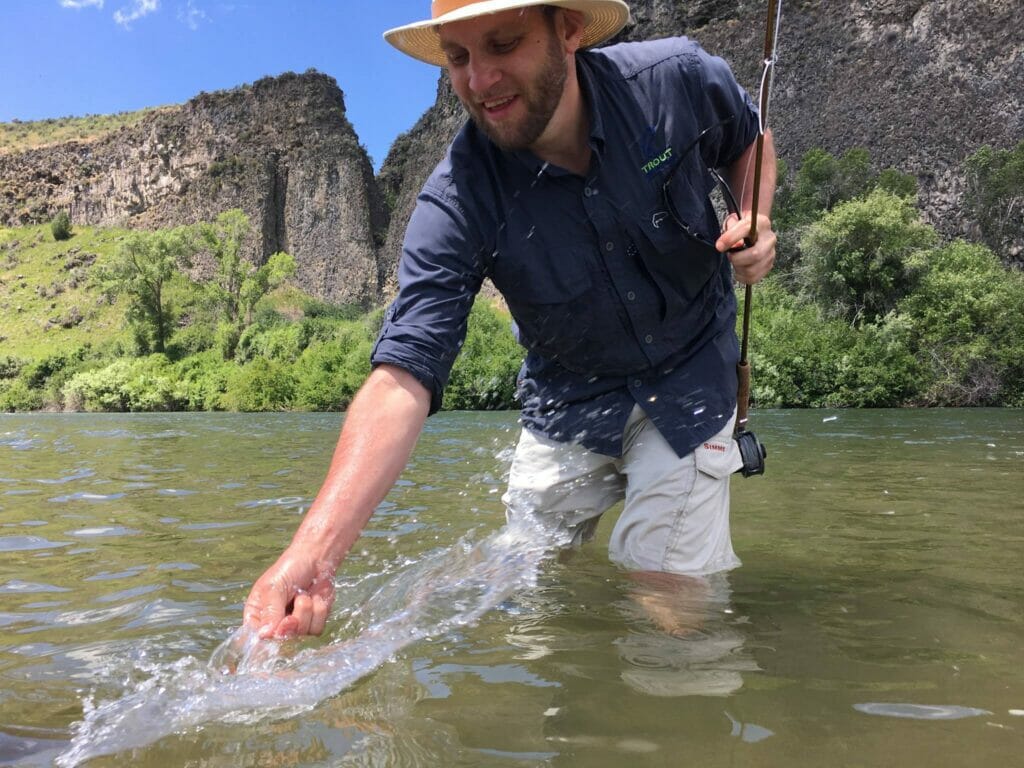By Andy Rasmussen
I learned in school that rivers are the lifeblood of nature and civilization. Draining entire continents in their meandering course, the great river systems deliver lifegiving water and commerce to much of the earth’s surface. And as fishers we know that “eventually, all things merge into one, and a river runs through it.”
On a recent trip to Utah’s Green River, on a painfully fishless afternoon, I lost myself in rumination. As I watched yet another large brown trout inspect my size 18 olive comparadun and slide away chuckling to himself, I sighed, picked up my fly with a short backcast and reset it on the clear water for another float.
I usually fish with friends these days, but a solo day on the water seemed appropriate under the restrictions of “social distancing.” And truthfully, I was glad of it. The soaring red cliffs that flank the river on the “A section” demand silence and introspection. Such silence it seems as though the whole world is discovering right now. For a couple months, pandemic restrictions muffled the commotion of modern life and sent us into our heads.
They say it’s impossible for these fish to understand the idea of water. Their entire existence is wet and fluid. Comprehension of solid, dry ground, or cool refreshing breezes, eludes them.

All at once, as the shadows lengthened in the “half-light of the canyon” and the rocky heights shouldered deeper into my consciousness, I realize I have become aware of the water I was living in. A virus stopped the world and the water of my routines sloshed over the side. Like everyone else working to navigate the new realities of “shelter-in-place” orders, forced homeschooling and toilet paper shortages I was suddenly aware of the patterns and grooves of habit in my daily life. And I wondered, did I choose these ruts of action? Did I build this life consciously? What is this stuff I am swimming in?
I reeled in, clipped off the fruitless fly, and turned to hike back to my car. Maybe I don’t understand anything, even in my own life. But maybe, I am beginning to grasp why I do this work; why I choose to center my professional life on moving water and its residents. Maybe I finally understand where Roderick Haig-Brown was standing when he wrote, “I still don’t know why I fish or why other men fish, except that we like it and it makes us think and feel. But I do know that if it were not for the strong, quick life of rivers, for their sparkle in the sunshine, for their cold grayness in the rain, and the feel of them about my legs as I set my feet down hard on rocks or sand or gravel, I should fish less often. Perhaps fishing is, for me, only an excuse to be near rivers.
If so, I’m glad I thought of it.”
Andy Rasmussen is the Utah coordinator for TU’s Sportsmen’s Conservation Project.



